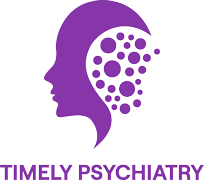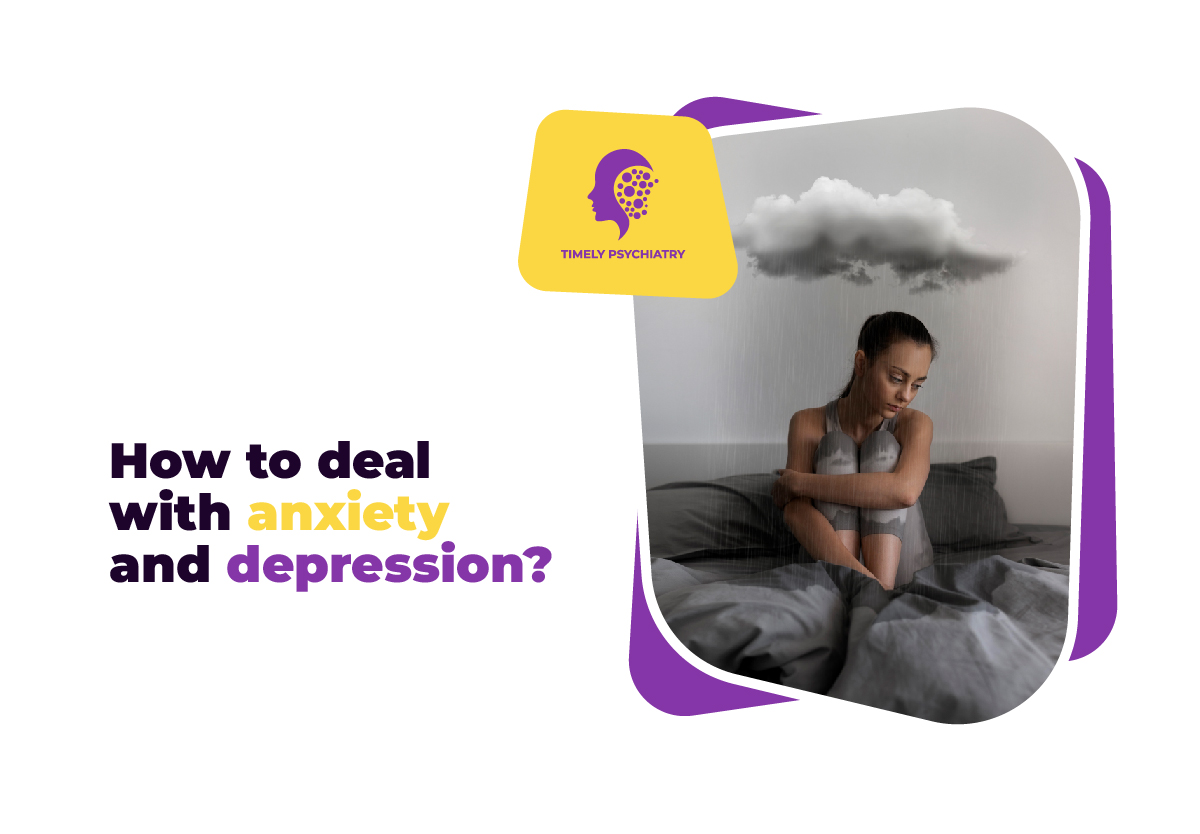Anxiety and depression is sometimes beyond what a person can bear but it’s helpful to know that there are ways out of it.
Many people across the world grapple with and battle with these psychological issues every day.
Nevertheless, besides seeking professional help, you should adopt certain habits in your daily life that can enable you to cope with symptoms of mental illness with ease.
In the blog post below, we’ll talk about ways and mechanisms to help you manage anxiety and depression.
Let’s begin.
Anxiety and Depression
Anxiety and depression are both complicated mental health conditions that can show up in different ways in people.
Anxiety usually appears as:
- Excessive worry.
- Fear.
- Nervousness about everyday events.
Depression is defined as:
- Feelings of sadness.
- Hopelessness.
- Guilt.
- Lack of interest or pleasure in activities
- No longer finding enjoyment in the things you once did.
It is crucial to know the signs and symptoms of anxiety and depression so that adequate help can be given.
Both of these cases are actual and valid medical conditions that require good treatment.
How to Manage Anxiety and Depression
Here’s how to manage anxiety and depression.
1. Practice Mindfulness and Meditation
Mindfulness meditation is one of the finest cures for anxiety and depression.
At any given day, you can spend a few minutes being present with yourself which can calm your mind and get rid of those feelings of stress or anxiety.
You can learn how to meditate online or just sit somewhere comfortably while you focus on taking deep breaths.
Meditation will ease your mind and help it unwind.
The concept of mindfulness does not come easy — indeed, continual practice must take place for one to be accustomed to performing it daily.
2. Regular Movement and Exercise
Engaging in physical exercise has several emotional benefits such as reduction of symptoms related to depression and anxiety.
It doesn’t really matter if you get a kick from running, doing yoga, having a fitness class with your trainer or merely going outside for a walk — moving your body releases endorphins and makes you feel better.
Adopt an exercise regimen that conforms to your lifestyle and incorporate it into your everyday life.
Even if it’s only for a few minutes; physical activity can help improve how you feel.
3. Connect with Others and Ask for Support
There isn’t a need to suffer alone when anxiety and depression set in.
Support and guidance are available through friends, family members or therapists.
Discussing such feelings with someone close to you will reduce isolation and help others understand your feelings.
Joining self-help groups or participating in group therapy meetings provides opportunities for solidarity among those with similar experiences as yours.
4. Maintain Healthy Habits and Routines
Maintain a healthy lifestyle in order to deal with high functioning depression and anxiety as it is very necessary.
Enough sleep as well as eating nutritious foods will make sure that you stay in good health.
Moreover, when you have regularity in your routine it can also help you feel like you have stability and predictability in your life.
Set reasonable goals for yourself and appreciate the small steps because they do matter.
Create moments that are meant to comfort you when you are feeling down.
These can be:
- Reading a book.
- Taking a bubble bath.
- Spending time in nature.
- Watching something comforting like a movie or a TV show you enjoy.
- Baking.
- Listening to music, podcasts or audiobooks.
5. Get Professional Help When Needed
Lastly, know when professional help is needed.
If the symptoms of anxiety and depression are affecting your daily life to the point it interferes with your productivity then don’t hesitate to reach out to a mental health professional for help.
Treatment can include therapy, medications or both – this will be done in order to manage the symptoms and encourage recovery at a faster rate.
Mental health goes hand in hand with physical wellness and getting treatment is part of the recovery progress.
In Closing
Dealing with anxiety and depression can feel overwhelming but it’s essential to know there’s hope and help available for you.
These practices should be added: regular physical exercise, connecting with others, developing good habits and seeking advice of specialists when necessary.
Try being patient and gentle to yourself during this process.
Find support around you and rely on hope knowing that tomorrow will be more peaceful than today.
For treatment options, please call us at Timely Psychiatry.
Some additional resources:
FAQs
How to manage anxiety and depression?
- Meditate.
- Exercise and workout daily.
- Connect with people.
- Maintain healthy routines.
- Get support from a mental health expert.
How to help someone with anxiety attack over text?
Here’s what you can do:
- Offer your reassurance to them.
- Listen with attention.
- Recommend soothing activities like deep breathing.
Can you go to the hospital for anxiety?
Yes you can if your symptoms are severe or linked to thoughts of self-harm. In cases like these it’s important to get help right away.
What are drug-induced anxiety symptoms?
There can be some medications or substances that might cause anxiety-like symptoms. Do consult a professional for evaluation and management.
What to say when someone is having a bad day?
- Show your empathy.
- Offer your support.
- Let them know that you’re there for them.
- Just listening can also mean alot.
What’s a depressing background?
- This can be something like growing up in poverty.
- Experiencing trauma.
- Living in an environment that is physically or emotionally abusive.
I’m overthinking and creating problems that don’t exist; what do I do?
Overthinking causes self-generated worries.
- Be present in the moment.
- Take on irrational thoughts.
- Practice mindfulness to end this cycle.
What are functioning depression symptoms?
People with functioning depression can appear outwardly “normal” and continue with daily activities but they still experience depressive symptoms like consistent sadness, no energy and unhappiness.
I have been depressed my entire life; what do I do?
Get professional help to diagnose and treat longstanding depression. Therapy and medication are the best treatments.
How to ask for help with depression and anxiety?
Reach out to some you geneuinely trust and then try communicating what you feel to them.
It’s okay to be open and honest about your struggles and think about getting professional mental health support.
It’s hard explaining depression and anxiety to someone who doesn’t understand; what do I do?
Explain that depression and anxiety are legit conditions that can affect how a person thinks, feels and acts.
You can also share some resources or stories to increase awareness.
What should be depression treatment plan goals?
Treatment goals for depression can include:
- Easing symptoms.
- Bettering daily life and functioning.
- Providing coping skills.
- Preventing relapse.
Is depression and anxiety neurodivergent?
No they aren’t. Neurodivergence refers to conditions like autism, ADHD or dyslexia.
Depression and anxiety are mental health issues.
What are the signs you are recovering from anxiety and depression?
These can be the signs;
- You have a better mood.
- Your energy levels have gotten better.
- You have better sleep patterns.
- You aren’t thinking negatively.
- You’re feeling motivation.
- You’re able to enjoy things and activities you like.

